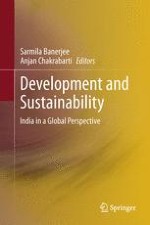2013 | OriginalPaper | Chapter
2. Rethinking and Theorizing the Indian State in the Context of New Economic Map
Authors : Anjan Chakrabarti, Anup Dhar
Published in: Development and Sustainability
Publisher: Springer India
Activate our intelligent search to find suitable subject content or patents.
Select sections of text to find matching patents with Artificial Intelligence. powered by
Select sections of text to find additional relevant content using AI-assisted search. powered by
